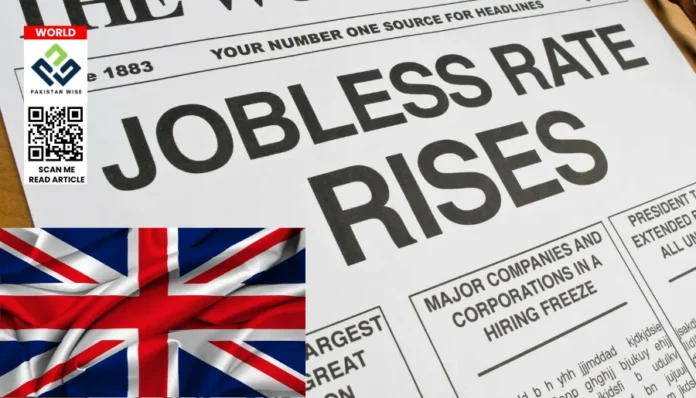- UK unemployment rose to 4.5% in Q1 2025 as job vacancies and payroll numbers declined across key sectors.
- Rising employer costs and economic uncertainty are slowing hiring, with wage growth easing but still outpacing inflation.
- The Bank of England cut interest rates to boost the economy, while job seekers face tougher competition and fewer openings.
Understanding the UK’s Changing Job Market in 2025
The United Kingdom’s job market is facing new challenges in 2025. The unemployment rate has climbed to 4.5% in the first quarter, the highest level since August 2021. This article will break down what’s happening, why it matters, and what it could mean for people looking for work, all in clear language that’s easy to understand.
What’s Happening in the UK Job Market?
The start of 2025 has brought noticeable changes to the UK’s employment landscape. Here’s a summary of the key facts:
- Unemployment Rate: The percentage of people without jobs but actively looking for work rose to 4.5% between January and March 2025, up from 4.4% in the previous quarter.
- Job Vacancies: The number of open positions dropped by 42,000 during the quarter, making this the 34th quarter in a row where vacancies have fallen. There are now 761,000 advertised jobs, which is below the level seen before the COVID-19 pandemic.
- Payroll Numbers: The number of people on company payrolls decreased by 33,000 in April 2025, bringing the total to 30.3 million employees.
- Wage Growth: Pay is still rising, but the pace has slowed. Regular pay (not including bonuses) grew by 5.6% in the first three months of 2025, down from 5.9% in the previous quarter. After accounting for inflation, real wages are still growing, but more slowly than before.
- Economic Inactivity: The share of people aged 16 to 64 who are not working or looking for work is 21.4%, which is slightly lower than last year but still high.
Why Is Unemployment Rising?
Several factors are contributing to the increase in unemployment and the slowdown in job growth:
- Higher Employer Costs: Businesses are facing more expenses, such as increased national insurance contributions and a higher national minimum wage. This makes it more expensive to hire and keep workers, so some companies are cutting jobs or not filling open positions.
- Economic Uncertainty: Ongoing concerns about the economy, including inflation and changes in interest rates, have made some employers cautious about hiring new staff or expanding their businesses.
- Falling Demand in Key Sectors: Industries like construction, manufacturing, and transport have seen the biggest drops in job vacancies, suggesting that these areas are struggling more than others.
What Does This Mean for Job Seekers?
If you’re looking for a job in the UK right now, you might notice a few things:
- Fewer Job Openings: With vacancies falling for over two years straight, it’s becoming harder to find open positions, especially in certain industries.
- More Competition: As unemployment rises, more people are applying for the same jobs, making the job hunt tougher.
- Wages Still Rising (But More Slowly): The good news is that pay is still going up, and for now, it’s rising faster than inflation. This means workers’ spending power is improving, but the rate of wage growth is slowing down.
How Is the Government and Bank of England Responding?
The government and the Bank of England are watching these changes closely:
- Interest Rates: The Bank of England has started cutting interest rates to help support the economy. Lower rates can encourage businesses to borrow and invest, which might help create more jobs in the future.
- Employment Targets: The government’s goal is to have 80% of people aged 16 to 64 in work. Right now, the employment rate is 75%, so there’s still work to do to reach that target.
Article: UK Immigration White Paper 2025: Key Changes Explained
What Could Happen Next?
Experts are predicting a few possible outcomes:
- Further Rate Cuts: If unemployment keeps rising and the job market weakens, the Bank of England may cut interest rates again to try to boost the economy.
- Slow Recovery: Even if the economy improves, it may take time for job vacancies to rise and for unemployment to fall back to previous levels.
- Focus on Skills: With some industries struggling more than others, workers may need to learn new skills or switch careers to find stable employment.
Conclusion
The UK’s job market is facing real challenges in 2025, with rising unemployment, fewer job vacancies, and slower wage growth. While workers are still seeing their pay rise faster than inflation, finding a job is getting tougher, especially in certain industries. By staying informed, building new skills, and being flexible, people can improve their chances in this changing environment.

